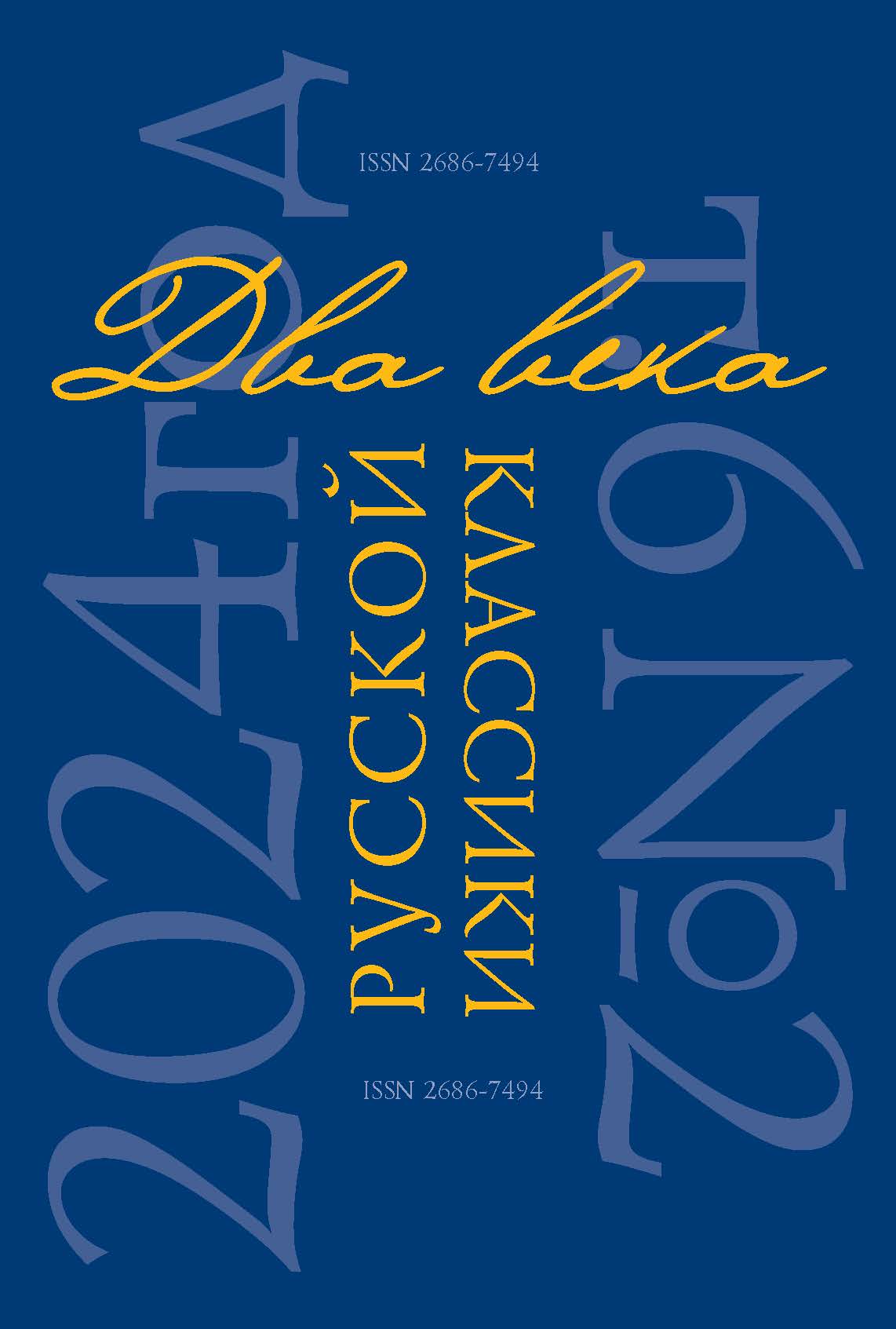Abstract: In F. M. Dostoevsky’s geopolitical worldview, the division of the world into “ingroup” and “the other” (“outgroup”) often occurs not according to the principles of state-administrative division but based on national and confessional factors. The research aims to explore the geopolitical images of Armenians, Georgians, Bulgarians, and Greeks in Dostoevsky’s legacy. It shows how the belonging of a nation to Christianity, Orthodoxy, and the Slavic world affect the writer’s understanding of the nation as “in group” or “the other.” The study demonstrates that Christian Armenians and Orthodox Georgians turn out to be “the others” to the writer, even though they are part of the Russian Empire and its confessional system as well. At the same time, the Bulgarians — the Balkan Orthodox Slavs — are “in group,” while the Orthodox Greeks are “the other.” The reason for Dostoevsky’s aversion to the Greeks lies in the potential threat they pose, in his opinion, to the future of the pan-Slavic Orthodox state, of which Dostoevsky is a fervent supporter. The study allows us to conclude that for Dostoevsky, the belonging of an ethnic group to the Slavic world turns out to be more significant than his confessional commitment to Christianity.
References
Bocharov, S. G. “Leont’ev i Dostoevskii” [“Leontiev and Dostoevsky”]. Bocharov, S. G. Siuzhety russkoi literatury [Plots of Russian Literature]. Moscow, Iazyki russkoi kul’tury Publ., 1999, pp. 341–397. (In Russ.)
Grigorova, D. “Konstantin Leont’ev o Bolgarskom voprose na Balkanakh” [“Konstantin Leontiev on the Bulgarian Question in the Balkans”]. Slaviane i Rossiia, no. 1, 2019, pp. 258–270. (In Russ.)
Semikopov, D. V. “Dva tipa ekklesiologii v russkoi religioznoi filosofii vtoroi poloviny XIX veka (Leont’ev contra Dostoevskii)” [“Two Types of Ecclesiology in Russian Religious Philosophy of the Second Half of the 19th Century (Leontiev contra Dostoevsky)”]. Trudy Nizhegorodskoi dukhovnoi seminarii, no. 9, 2011, pp. 43–63. (In Russ.)
Dorovatovskaia-Liubimova, V. S. “Frantsuzskii burzhua (Materialy k obrazam Dostoevskogo)” [“The French Bourgeois (Materials for Dostoevsky’s Images)”]. Literaturnyi kritik, no. 9, 1936, pp. 211–212. (In Russ.)
Karpova, E. A. “Pochemu K. N. Leont’ev nazval idei L. N. Tolstogo i F. M. Dostoevskogo ʽrozovym’ khristianstvom?” [“Why Did K. N. Leontiev Call the Ideas of L. N. Tolstoy and F. M. Dostoevsky ʽPink’ Christianity?”]. Filosoficheskie pis’ma. Russko-evropeiskii dialog, no. 4 (3), 2021, pp. 85–97. https://doi.org/10.17323/2658-5413-2021-4-3-85-97 (In Russ.) Mikhnovets, M. V. “Kavkaz v sisteme geopoliticheskikh predstavlenii
F. M. Dostoevskogo” [“The Caucasus in the System of Geopolitical Representations by F. M. Dostoevsky”]. Studia Rossica Gedanensia, no. 4, 2019, pp. 97–106. https://doi.org/10.26881/srg.2019.6.07 (In Russ.)
Mikhnovets, M. V. “Osobennosti formirovaniia obraza Kavkaza v tvorcheskom soznanii Dostoevskogo” [“Features of the Formation of the Image of the Caucasus in the Creative Consciousness of Dostoevsky”]. Vestnik Kostromskogo gosudarstvennogo universiteta, no. 1, 2020, pp. 132–137. https://doi.org/10.34216/1998-0817-2020-26-1-132-137 (In Russ.)
Novikova, E. G. “ʽZapadnye slaviane’ v ʽDnevnike pisatelia’ F. M. Dostoevskogo perioda russko-turetskoi voiny 1877–1878 gg.” [“ʽWestern Slavs’ in the ʽDiary of a Writer’ by F. M. Dostoevsky During the Russian-Turkish War of 1877–1878”]. Imagologiia i komparativistika, no. 1 (5), 2016, pp. 44–51. (In Russ.)
Novikova, E. G., E. M. Ponkratova, and A. G. Kozhevnikova. “Geopoliticheskaia karta mira F. M. Dostoevskogo: sistemnoe opisanie” [“F. M. Dostoevsky’s Geopolitical Map of the World: A Systematic Description”]. Tekst. Kniga. Knigoizdanie, no. 28, 2022, pp. 5–21. https://doi.org/10.17223/23062061/28/1 (In Russ.)
Orekhanov, Iu. L., and A. V. Posternak. “L. N. Tolstoi, F. M. Dostoevskii i K. N. Leont’ev: smysl i znachenie spora o ʽRozovom khristianstve’.” [“L. N. Tolstoy, F. M. Dostoevsky, and K. N. Leontiev: The Meaning and Significance of the Dispute About ʽPink Christianity’.”] Iaroslavskii pedagogicheskii vestnik, no. 1 (3), 2011, pp. 34–40. (In Russ.)
Ponkratova, E. M. “ʽDnevnik pisatelia’ za 1876 g. F. M. Dostoevskogo v svete geopoliticheskoi problematiki” [“ʽThe Diary of a Writer’ for 1876 by F. M. Dostoevsky in the Light of Geopolitical Issues”]. Gumanitarnye issledovaniia. Istoriia i filologiia, no. 9, 2023, pp. 82–92. https://doi.org/10.24412/2713-0231-2023-9-83-93 (In Russ.)
Urushadze, A. T. “Armianskaia Apostol’skaia Tserkov’ v politike Rossiiskoi Imperii: poisk administrativnogo optimuma” [“The Armenian Apostolic Church in the Politics of the Russian Empire: The Search for an Administrative Optimum”]. Zhurnal frontirnykh issledovanii, no. 3 (23), 2021, pp. 63–93. https://doi.org/10.46539/jfs.v8i3 (In Russ.)
Shcherbinin, A. I., and N. G. Shcherbinina. “Kartirovanie slavianskogo mira v ʽDnevnike pisatelia’ F. M. Dostoevskogo” [“Mapping the Slavic World in the ʽDiary of a Writer’ by F. M. Dostoevsky”]. Rusin, no. 4 (54), 2018, pp. 292–302. https://doi.org/10.17223/18572685/54/17 (In Russ.)









